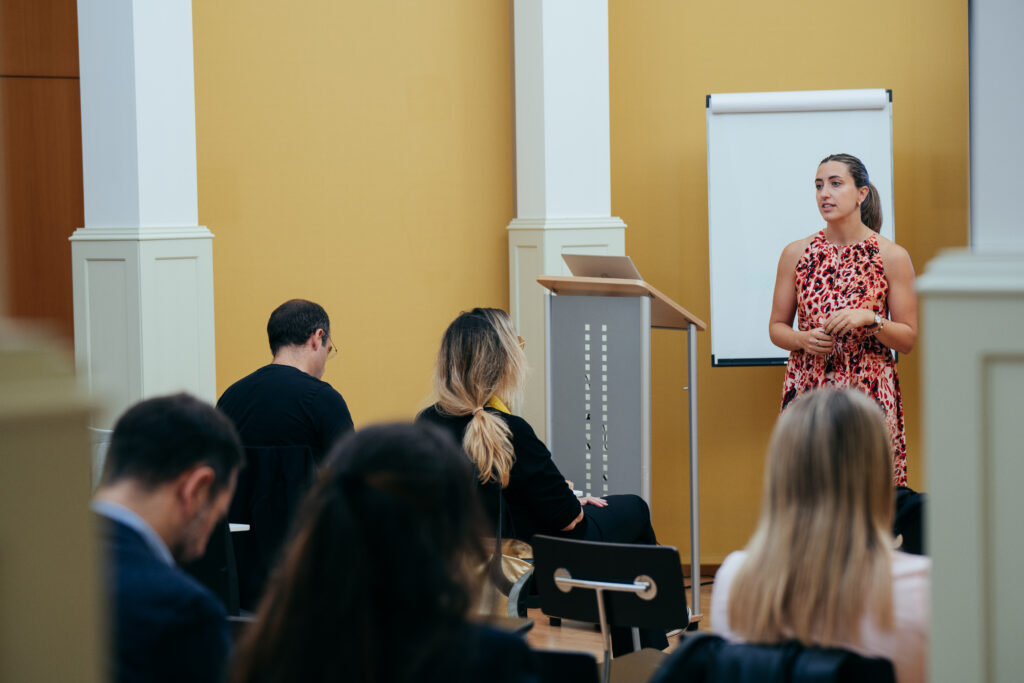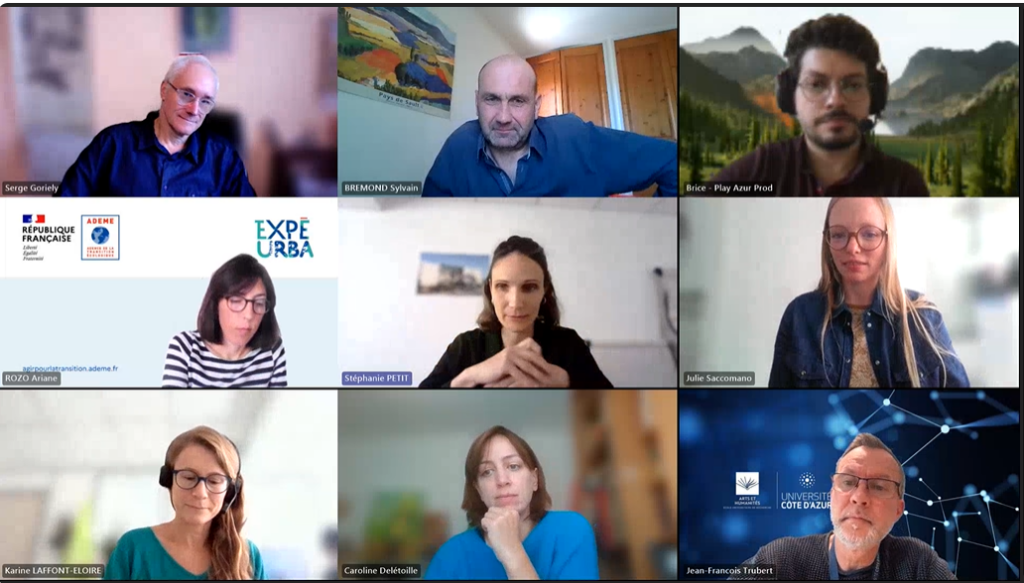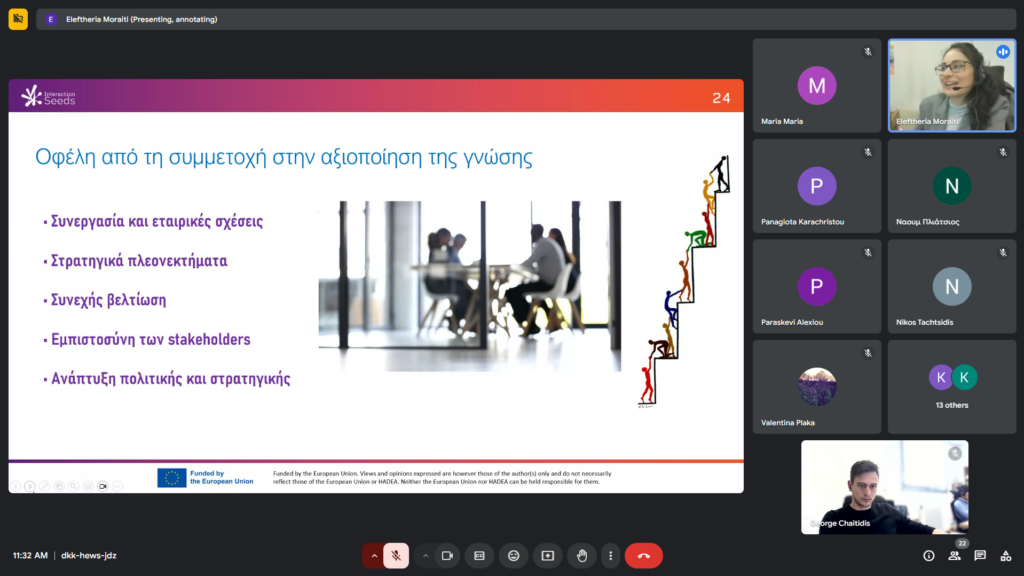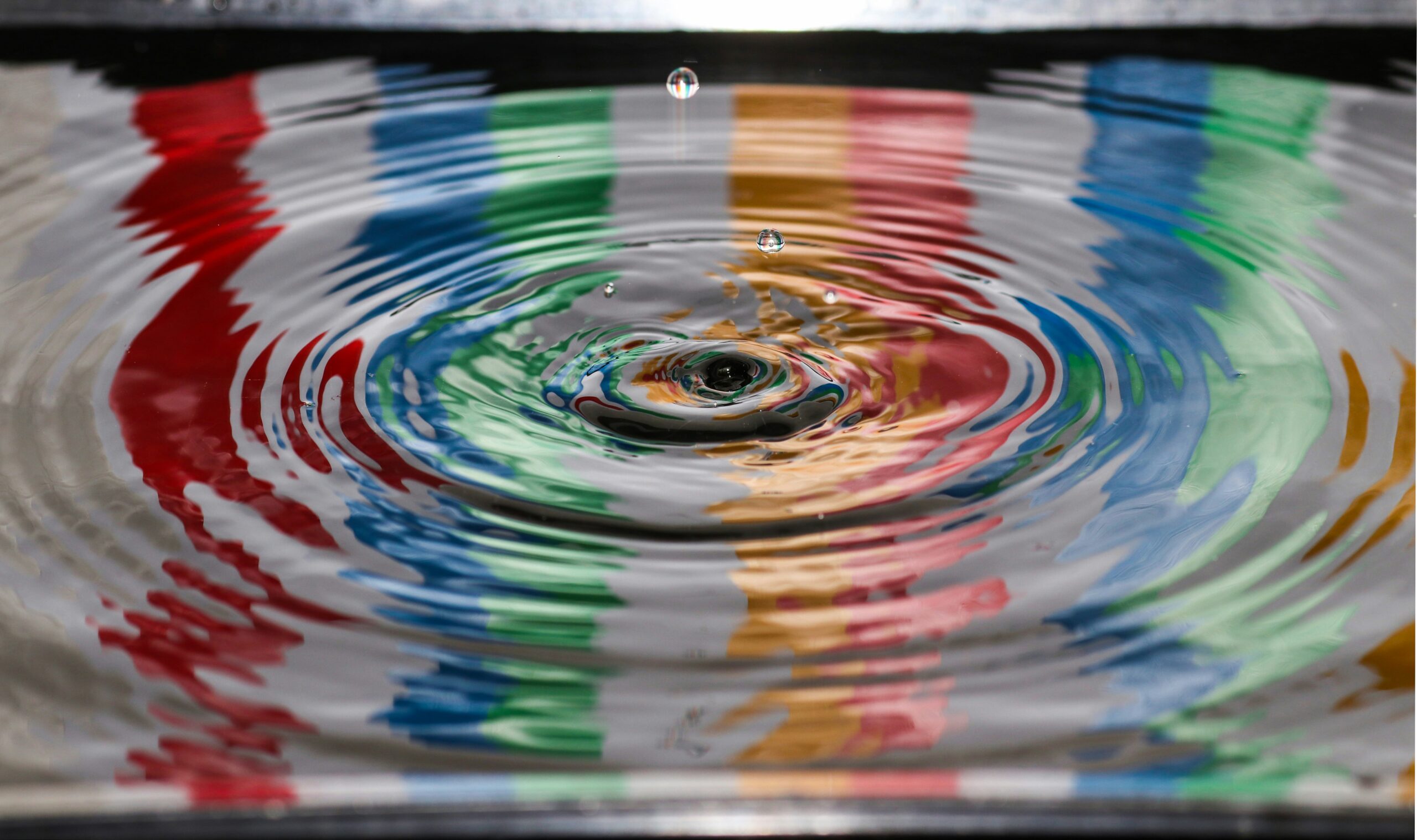The Role of Art in Knowledge Valorisation: Insights from the Interaction Seeds Training Workshops
Between September and December 2024, the Interaction Seeds project facilitated a series of workshops across five ecosystems in Spain, France, Sweden, and Greece, bringing together artists, researchers, students, traditional industry professionals and public authorities to explore the role of art and design in research and innovation, and in knowledge valorisation. These sessions aimed to spark discussions, share experiences, and build capacity for integrating artistic methods into societal, scientific, and innovation processes.

Workshops Overview
In France, discussions revolved around art’s role in shaping thinking, fostering stakeholder dialogues, and needing an art-science-society facilitator. The session highlighted « The best option » a short movie to introduces a political debate around AI humanly.
In Sweden, artists, researchers, designers, musicians, and academics discussed the risks of instrumentalizing art in R&I. The session highlighted “Collaborative Approaches to Societal Issues,” inspired by the “3C workshop.”
In Spain, knowledge valorisation methods and a combination of art-design thinking and Living Labs methodologies were discussed.
In Greece, participants from cultural associations, artists, and public authorities delved into the challenges businesses face when integrating art into their activities. Topics included knowledge valorisation, art and design thinking, and the role of cultural institutions.

Emerging Themes and Reflections
Participants from diverse disciplines and countries shared perspectives, uncovering key themes from the renewed interest in art to the opportunity and risks of merging creativity.
Renewed Interest in Art : Art is evolving beyond traditional boundaries to influence tech, media, tourism, urban development, sustainability transitions, consumption patterns, and democratic participation. The framing of art as a tool for societal impact, knowledge production, and critique highlights its political and creative power.
Barriers to Integration : One significant challenge is the conflict of legitimacy, where artists often encounter scepticism in « speaking the truth » across sectors as their methods and perspectives may differ from established norms.
Time constraints also pose a considerable obstacle, as both artists and other stakeholders often lack the capacity to fully engage in the lengthy, iterative processes required for meaningful artistic and cultural integration.
Opportunities and Risks of Merging Creativity
While cross-disciplinary collaboration can yield mutual benefits, systemic challenges could arise such as the tendency to instrumentalize art solely for utilitarian purposes, which undermines its creative and critical essence.
Transitions into impactful innovation require shifting cultural imaginaries but also redefining business models and raising awareness on the benefits of social innovation.
Facilitating Art-Science Collaboration
Finally, it became evident that a dedicated facilitator can be pivotal in guiding collaborative processes, ensuring creative immersion, and fostering environments where innovation thrives.

A Shared Vision for Art-Science-Society Integration
The discussions illuminated the transformative potential of art in shaping knowledge valorisation. Art is not merely an embellishment to science or innovation—it is a critical, political, and creative force that fosters genuine engagement and change, challenges norms, and inspires transitions.
The workshops revealed enthusiasm for implementing “seeds” (art-science interactions) in various contexts, alongside interest in sharing good practices and lessons learnt. Participants expressed the need for a repository of adaptable seeds, complete with manuals tailored for diverse ecosystems. This would ensure both replicability and flexibility for new settings.
Moving forward, the Interaction Seeds project aims to:
- Deepen understanding of context-specific implementations across countries.
- Develop resources that support local adaptations while maintaining a coherent framework for global sharing.
With this foundation, the Interaction Seeds project looks toward scaling these insights into broader initiatives, fostering a vibrant, artistically connected community capable of addressing complex societal challenges.
